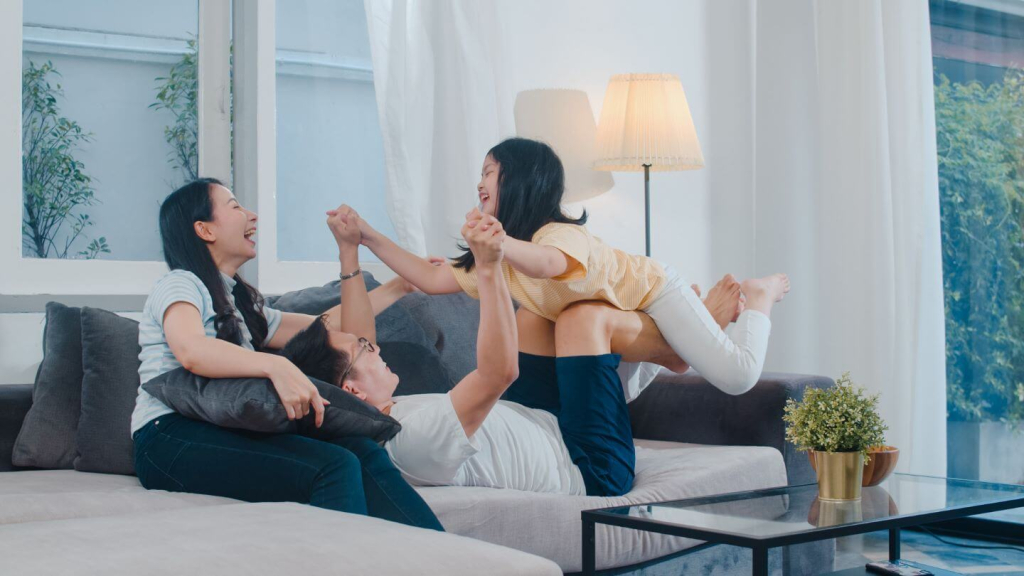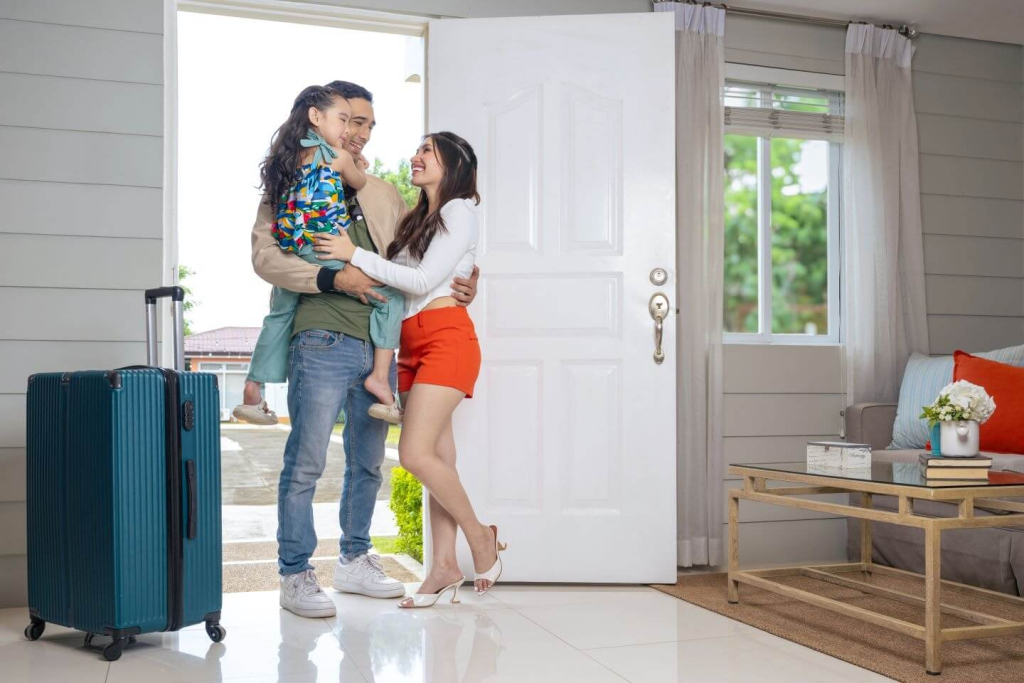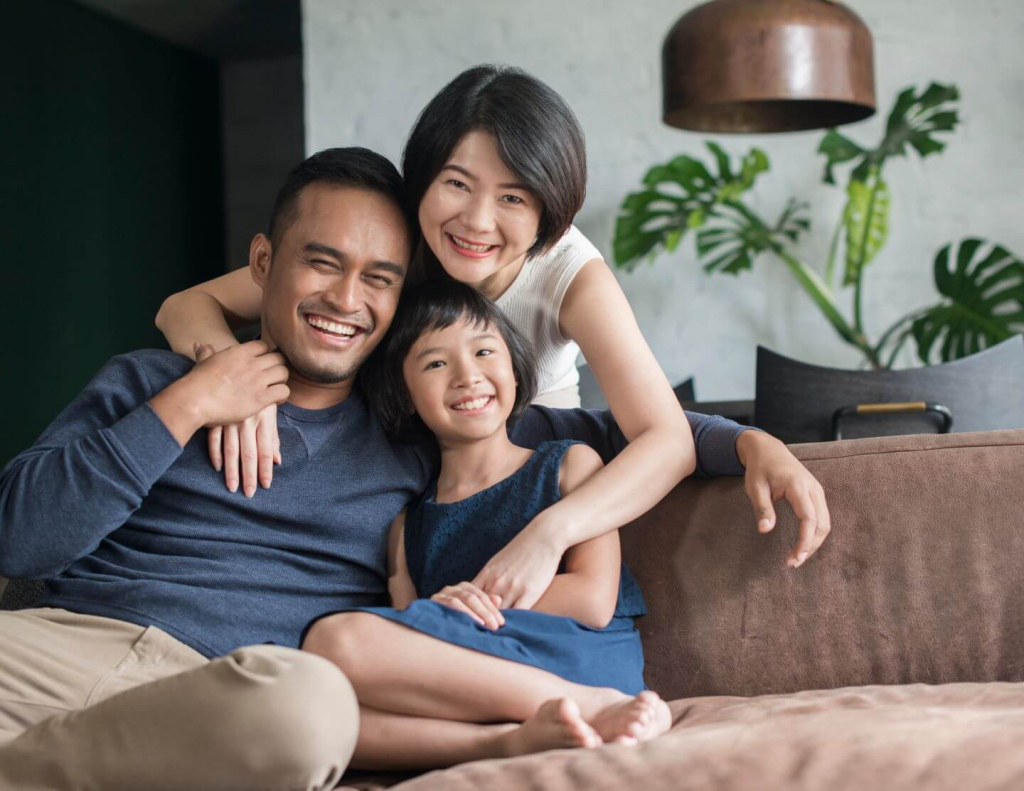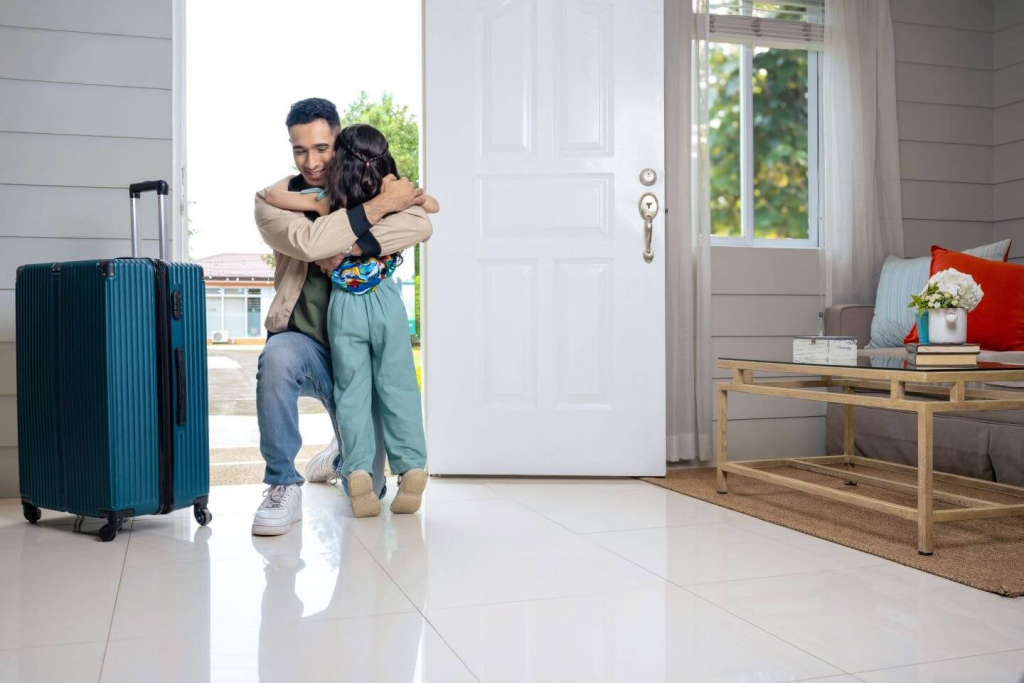
Image source: Freepik
Introduction on How to Welcome a Returning OFW
Every year, many OFWs make the journey back to the Philippines, eager to be reunited with their loved ones. For these overseas Filipino workers, the years spent working abroad—whether in the Middle East or other countries—often mean long hours of labor, countless sacrifices, and extended absence from family life.
Their OFW remittances sustain households, support education, and contribute significantly to the economic health of the country. According to the Philippine Statistics Authority, billions of pesos flow into the local economy through remittances, boosting development, jobs, and social welfare initiatives.
Yet statistics only tell part of the story. The emotional side of returning is equally important. Repatriated OFWs carry experiences, new skills, and sometimes the weight of reintegration.
The question of how to welcome an OFW is not just about warm hugs at the airport—it’s about making the home a sanctuary where they can rest, recover, and reconnect.
This is where thoughtful design, intentional routines, and supportive communities come into play.
Welcoming a Returning OFW Home Starts with Arrival
The return home marks the end of years of separation. When OFWs return, the initial moments set the tone for healing. A clean entryway, polished floors, and organized furniture immediately show care. Even small touches, such as displaying family photos or letting children prepare drawings, communicate love.
Some families may feel pressured to put on extravagant celebrations, but meaningful gestures often matter more. Preparing their favorite home-cooked dish or allowing them time to rest before long conversations avoids overwhelming them.
Families can review their welcome plans together, making sure each request is simple, heartfelt, and not unnecessarily costly.
Today, even planning benefits from technology. Families can use a browser to look for design inspirations or affordable party ideas. What matters most is not the size of the gathering but the emotional warmth behind it.

Creating Comfortable Spaces for Returning Overseas Filipino Workers
A Bedroom Built for Rest After Working Abroad
Sleep is one of the most valuable gifts for returning OFWs. Years of life abroad often mean cramped accommodations or irregular shifts.
A refreshed bedroom with blackout curtains, ergonomic pillows, and organized storage signals that their family values their comfort.
The room doesn’t have to be expensive. Families can attempt simple DIY upgrades such as repainting walls in calming colors or rearranging furniture to maximize ventilation. If resources allow, investing in a new mattress is a worthy gesture of gratitude.
Bathrooms and Personal Care Spaces for Returning OFWs
Privacy and personal care matter. Many overseas Filipinos get accustomed to bathroom features like hot showers or bidets while working abroad.
Families can avail small upgrades, such as water heaters or improved ventilation systems, without incurring high costs. These adjustments show sensitivity to the comfort they experienced in other countries.
Dining and Kitchen Spaces as the Heart of the Home for Overseas Filipinos
Meals are moments of reconnection. A welcoming dining space brings friends, children, and loved ones together.
Even if the kitchen is modest, rearranging seating to encourage conversation or upgrading storage helps. Families may also bring in skills learned abroad, like cooking international recipes, and blend them with Filipino favorites.
Living Rooms That Encourage Family Reconnection
The living room is where stories are exchanged. A cozy setup—good lighting, comfortable chairs, and family photos—encourages returning OFWs to share experiences of working abroad.
This room should allow both laughter and quiet reflection, balancing social interaction with relaxation.
Outdoor Spaces That Welcome Rest and Friends
Outdoor areas create a balance between privacy and community. Patios, porches, or small gardens give returning OFWs a chance to unwind while also engaging with neighbors and friends.
Communities such as Camella Homes offer safe, open spaces where residents can gather without added costs, making reintegration less isolating.

Home Features That Support Everyday Life After Abroad
Storage, Organization, and Addressing Practical Needs
Pasalubong and luggage from foreign countries can easily clutter spaces. Well-planned storage prevents chaos and makes the transition smoother. Cabinets, labeled containers, and dedicated shelves for gifts and keepsakes help families keep order as OFWs return home.
Local Touches Blended with Global Influences
Many OFWs return with décor ideas or furniture styles inspired by international clients or homes they’ve seen overseas. Blending these touches with local materials strengthens identity. These small design fusions highlight the global experience while grounding the home in the Philippines.
Flexible Homes That Grow with Returning OFWs
Spaces for New Skills and Side Projects at Home
Some returning OFWs bring back skills in baking, tailoring, or digital work. Converting a small space into a workshop allows them to attempt building their own business.
Others may continue freelance work with foreign clients, requiring a workspace with proper lighting and minimal noise. Such spaces make employment opportunities possible without requiring a commute to work.
Designing for Children and Education in the Home
Being absent often leaves kids craving more presence. A designated study nook or shared reading corner builds stronger daily routines.
Families can also review how to balance play and study, ensuring that education remains a priority while nurturing bonds that may have been strained during years of life abroad.

Security and Safety Remain a Priority for Returning OFWs
After experiencing different conditions in varying countries, returning OFWs often prioritize security. Reliable gates, secure locks, and well-lit pathways create peace of mind. Community-based safety, where residents watch out for one another, also strengthens trust.
Modern subdivisions, including developments like Camella Homes, emphasize features such as guarded entrances and organized street layouts. For overseas Filipinos adjusting back to local routines, these aspects provide both protection and reassurance for their family.
For returning OFWs, reintegration also means rediscovering opportunities closer to home. Many discover that local jobs now offer competitive wages and better services than when they first left.
With experience gained from different parts of the world, they often qualify for positions that value both technical expertise and cultural awareness.
For those who once feared becoming unemployed after their contracts ended abroad, the chance to apply globally relevant skills to local demand becomes a source of pride.
Families also learn the importance of saving consistently, ensuring that the sacrifices made while exploring the world continue to translate into long-term security and stability back home.
How Communities Support Returning OFWs at Home
Reintegration does not rest solely on families. The Philippine government and local government units run programs through the Philippine Overseas Employment Administration and other departments.
These include reintegration program options, livelihood packages, and employment opportunities designed to address unemployment and create job generation.
The private sector also contributes by offering training or partnerships with companies that demand specific skills. By linking migrant workers to local industries, they help supply jobs and reduce dependence on life abroad.
Families are encouraged to avail these benefits not only for financial relief but also to support long-term development.

A Home That Truly Welcomes Returning OFWs
At the end of the day, the home is the center of healing. Beyond money or remittances, what matters most is creating a safe, loving space where returning OFWs can rebuild life with their loved ones.
It’s a place where sacrifices translate into comfort, where support replaces stress, and where programs and assistance complement family care.
For families preparing for the return of an OFW, the challenge is not only in arranging logistics but also in creating an environment that honors years of sacrifice.
A well-prepared home ensures that when OFWs return home, they don’t just arrive in the Philippines—they arrive back in love, belonging, and the comfort of family.

Celebrate Life’s Milestones in Camella!
Make unforgettable memories in a Camella home.
Our communities are designed to elevate your living experience.
